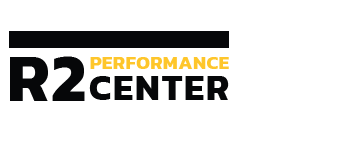

Take a Long, Deep, Deliberate Breath
Do you ever wish you had more energy throughout the day to keep up with your kids, focus on studying or finish strong on the Army Combat Fitness Test (ACFT)? Do you notice that you feel exhausted at the end of the day, have trouble falling asleep or feel like you’re burning the candle at both ends? Then, give deliberate breathing a try.
Deliberate breathing is a simple, but powerful, skill you can practice every day to boost your energy levels and recover energy. It can be used to improve your performance (2-3 breaths to get your focus on the present and balance your energy) and/or speed up your recovery (10-20 minutes of breathing to boost the ‘rest and digest’ response). Check out some of the benefits:
Performance
- Precision, accuracy and motor control - during a marksmanship exercise or when starting an intravenous drip
- Memory and recall - when taking a test, learning a new skill, or delivering a briefing
- Composure, poise, and self-control - before or during a stressful event like an argument with a loved one, an important interview or a counseling event
- Concentration and mental agility - during contingency planning or while speaking in public
- Reaction Time - while playing sports, qualifying with a weapon or clearing a room
Recovery
- Increases energy efficiency - using deliberate breathing between ACFT events to restore energy, so your body has more energy in the long run
- Speeds healing - regular practice allows your immune system to function optimally and your body to heal faster after a tough workout or an injury
- Helps manage pain - reduces the experience of acute or chronic pain by redirecting your attention to your breath and managing the brain’s response to pain
- Reduces insomnia - helps you fall asleep or fall back asleep faster
Deliberate breathing should be practiced daily to achieve maximum benefits. You can begin with just five minutes a day and increase your time as the exercise becomes easier and more comfortable. If five minutes feels too long, start with two minutes and add another minute as you progress. Some great times to practice this skill and make it part of your daily routine are after a workout, transitioning from ‘work mode’ to ‘home mode,’ or before you go to sleep.
Here are a couple of simple techniques to try:
- Diaphragmatic breathing helps you learn how to use your diaphragm properly. Place one hand on your upper chest and one hand below your rib cage, allowing you to feel the movement of your diaphragm (lower hand) as you inhale. Keep the hand on your upper chest as still as possible while you fill your belly like a balloon.
- Rhythmic breathing helps you learn how to pace your breathing, and particularly, in maximizing heart rate variability or HRV. Count during each inhale and exhale to make sure they are even in duration (e.g., 5 seconds in and 5 seconds out).
Resources
Watch VideoDownload Infographic
MORE SKILLS
